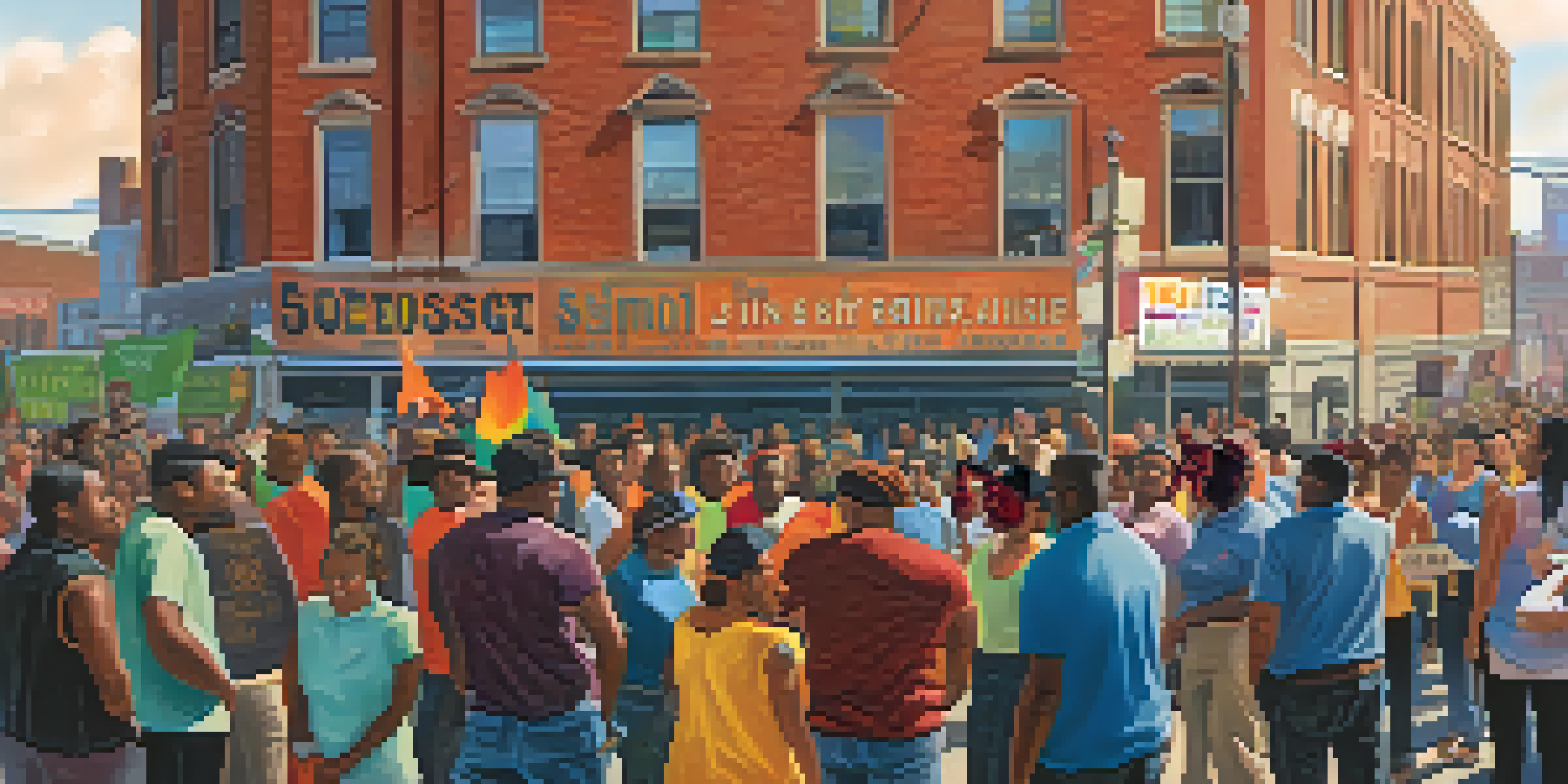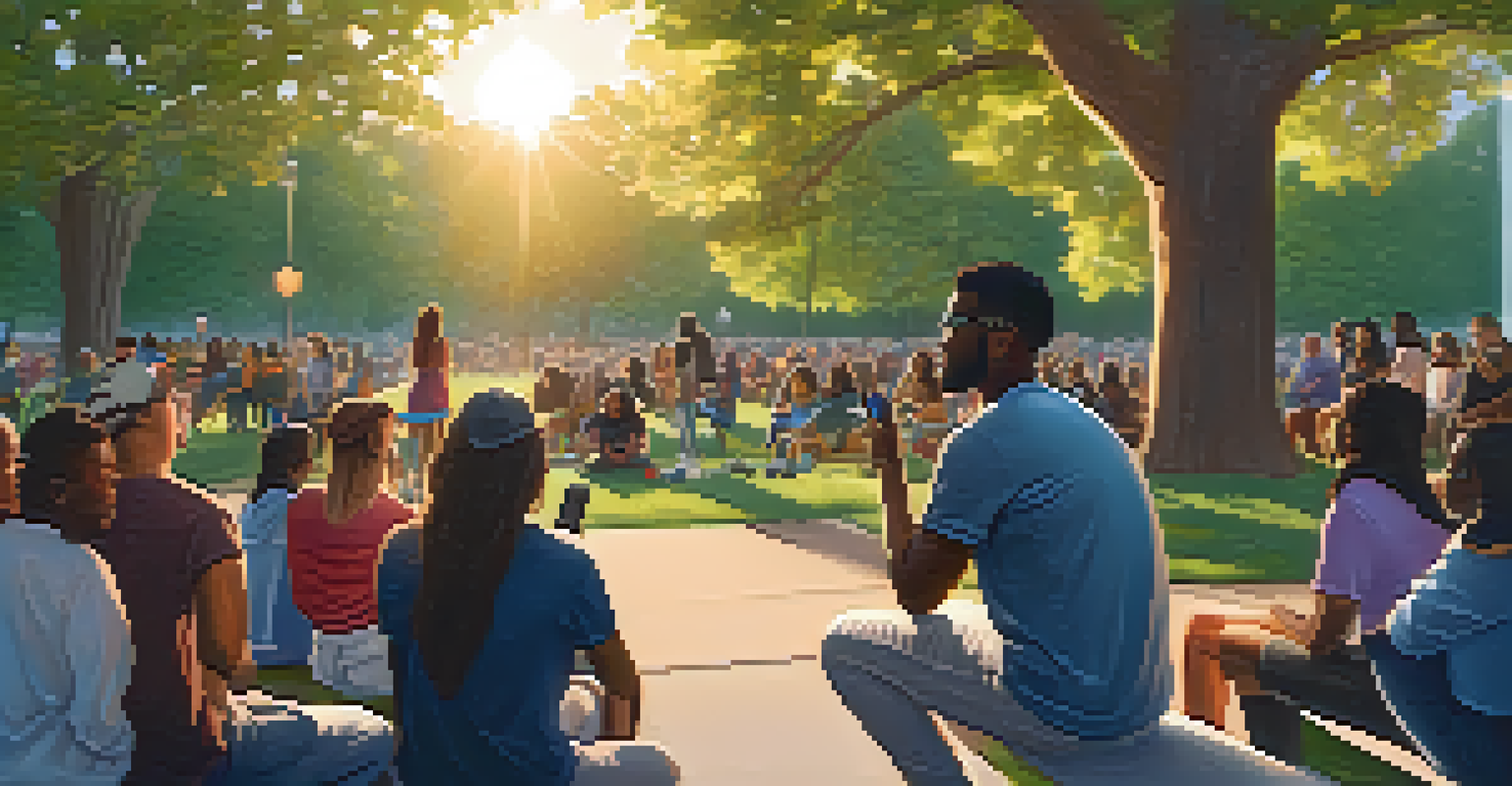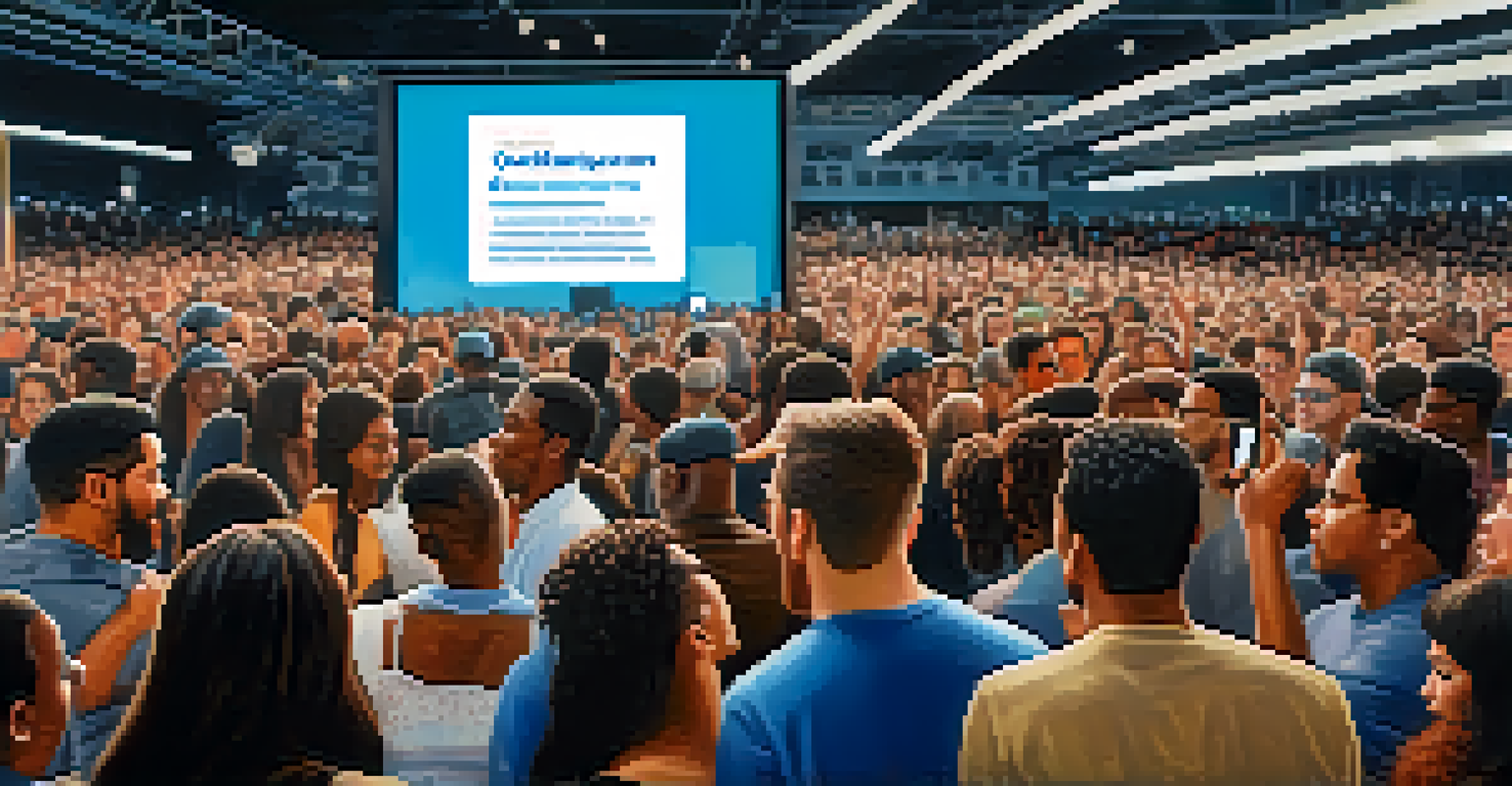Engagement and Activism: Social Media's Impact in Detroit

The Rise of Social Media Activism in Detroit
In recent years, social media has transformed the landscape of activism in Detroit. Platforms like Twitter, Instagram, and Facebook have become essential tools for grassroots movements, enabling voices that might otherwise go unheard. This change has empowered local communities to organize, share their stories, and mobilize support for various causes.
Social media is not just a tool for communication; it is a powerful platform for activism and social change.
One notable example is the Black Lives Matter movement, which gained traction in the city through social media campaigns. Activists were able to reach wider audiences, spreading awareness and encouraging participation in protests and community events. These platforms provided a space for discussion, allowing individuals to connect over shared experiences and challenges.
As a result, social media not only fosters engagement but also creates a sense of unity among residents. In a city known for its rich history of activism, the digital age has ushered in new methods for people to stand up for justice and equity, transforming the way Detroiters advocate for their rights.
Using Hashtags to Spark Change
Hashtags have become powerful tools for social movements in Detroit, helping to organize events and spread important messages. For instance, hashtags like #DetroitWillBreathe have galvanized support for climate justice and police reform, drawing attention to pressing local issues. These tags create a sense of community and urgency, encouraging people to act and engage.

By using a common hashtag, activists can easily track discussions and mobilize supporters. This unity under a shared banner often leads to increased participation in rallies and other community efforts, amplifying the collective voice of the movement. The simplicity of creating and sharing a hashtag allows anyone to join the conversation, making activism more accessible.
Social Media Empowers Activism
Platforms like Twitter and Instagram have transformed grassroots movements in Detroit, enabling local communities to organize and mobilize for various causes.
Moreover, hashtags can transcend local boundaries, attracting national attention to Detroit's challenges. As more people engage with these campaigns online, the potential for change grows, making social media an invaluable asset for local activists seeking justice and equity.
The Role of Influencers in Local Activism
Influencers play a significant role in shaping conversations around social issues in Detroit. With their large followings, they can bring attention to local causes, amplify marginalized voices, and inspire action. Many influencers use their platforms to advocate for community projects, fundraisers, and awareness campaigns, fostering a culture of engagement.
The most powerful tool we have as citizens is our ability to speak out and raise our voices, especially through platforms like social media.
For example, local artists and musicians often leverage their social media presence to address social justice issues, connecting with their fans on a deeper level. By sharing personal stories and insights, they cultivate a sense of empathy and understanding, encouraging others to join the fight for change. This blend of entertainment and activism creates a unique space for dialogue and support.
The collaboration between influencers and grassroots organizations can lead to successful campaigns that resonate with a broader audience. Through strategic partnerships, local activists can utilize the reach of influencers to push for systemic change, demonstrating the powerful impact of social media in Detroit's activism landscape.
Challenges of Digital Activism in Detroit
While social media has opened many doors for activism, it isn’t without its challenges. Misinformation can spread quickly, undermining genuine efforts and creating confusion. Activists must navigate a digital landscape where false narratives can overshadow critical issues, making it essential to verify information before sharing.
Additionally, the digital divide presents a barrier for some communities in Detroit. Not everyone has equal access to the internet or social media platforms, which can limit participation in online activism. This gap can result in underrepresented voices, particularly among marginalized groups, highlighting the need for inclusive strategies.
Hashtags Unite Community Efforts
Hashtags serve as powerful tools for organizing events and raising awareness, fostering a sense of urgency and community among activists in Detroit.
Despite these challenges, many activists are finding creative ways to bridge the divide. By organizing in-person events and using social media as a complementary tool, they can engage with a wider audience while ensuring that no one is left behind. These efforts demonstrate the resilience of Detroit's activists in tackling obstacles head-on.
Community Building Through Online Platforms
Social media has become a vital space for community building in Detroit. Online platforms allow residents to connect over shared interests, concerns, and goals, fostering a sense of belonging. This virtual gathering space can lead to real-life collaborations and initiatives that strengthen local bonds.
For instance, community organizations often use social media to promote events, share resources, and mobilize volunteers. By engaging with their audience online, these groups can effectively raise awareness about local issues while encouraging participation in community-driven solutions. This interconnectedness is crucial for driving change.
Moreover, these online interactions can lead to lasting friendships and partnerships. As people engage with one another, they build trust and solidarity, which are essential ingredients for any successful movement. The power of social media in community building lies in its ability to create connections that transcend physical boundaries.
Local Government and Social Media Engagement
Detroit's local government has recognized the importance of social media in engaging with residents. By utilizing platforms like Twitter and Facebook, city officials can communicate directly with the community, sharing updates, initiatives, and soliciting feedback. This transparency fosters trust and encourages citizen participation in local governance.
Additionally, city leaders can use social media to promote civic engagement events, such as town hall meetings and community forums. By reaching out through these channels, they can attract a more diverse audience, ensuring that various perspectives are represented. This approach not only strengthens democracy but also empowers citizens to take an active role in shaping their city.
Influencers Amplify Local Voices
Local influencers leverage their platforms to highlight social issues, inspire action, and collaborate with grassroots organizations for impactful campaigns.
However, it’s essential for local officials to remain responsive to community concerns raised on these platforms. Engaging in meaningful conversations and addressing feedback can help build stronger relationships between the government and residents. Ultimately, social media serves as a bridge, connecting the community with its leaders.
Future Trends in Social Media Activism
As technology continues to evolve, so will the landscape of social media activism in Detroit. Emerging platforms and tools will likely shape how activists connect and engage with their audiences. The integration of virtual reality and live streaming could revolutionize how movements share their stories and mobilize support, creating immersive experiences for viewers.
Additionally, the rise of decentralized social media could empower activists by providing alternative spaces free from corporate control. These platforms may offer more privacy and security for users, allowing for candid discussions and organizing without fear of censorship. Such developments could further enhance the effectiveness of online activism.

Moreover, as younger generations take the lead in activism, we can expect to see innovative strategies that leverage technology in unique ways. By blending creativity with social justice, Detroit's activists are poised to inspire change while adapting to the ever-shifting digital landscape, ensuring that their voices remain powerful and impactful.